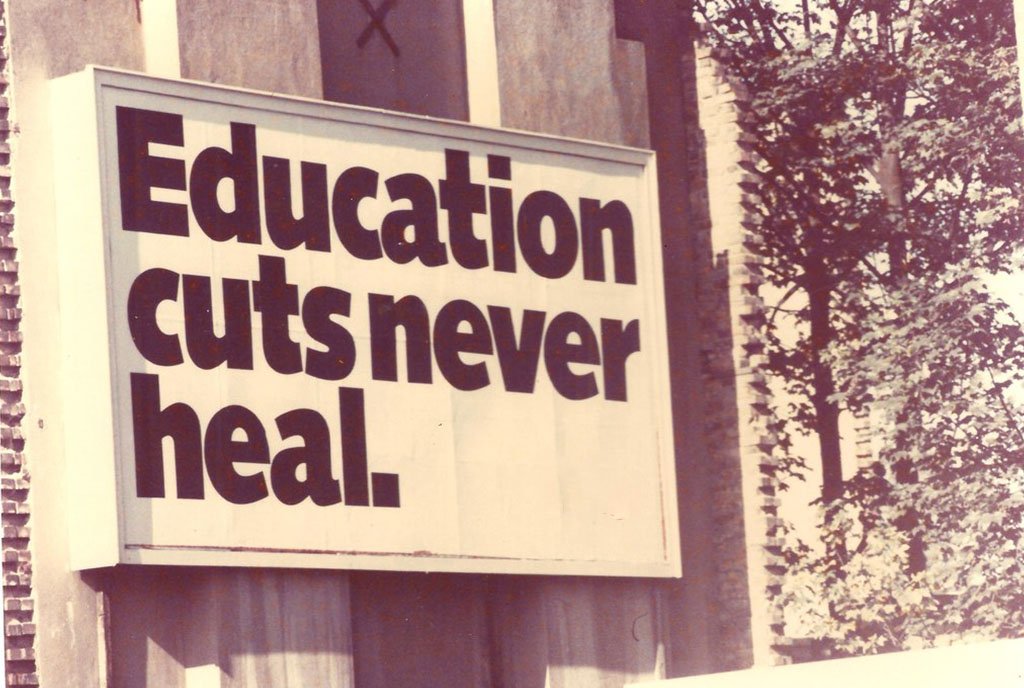
Sep. 7, 2015; The Daily Beast
In the past several months, BuzzFeed News and the Daily Beast have reported on the story of Pari Livermore, a California matchmaker profiled many times in prominent media outlets and who has come under fire because she raised money for a charity that isn’t registered. A potential client named Nancy Levine, who discovered Ms. Livermore from this coverage, has been unsuccessful at getting the media to correct or update their profiles of Ms. Livermore’s fundraising practices.
It all started when Levine found a profile of Livermore on the New York Times website and contacted her about her matchmaking services, which Livermore provides in exchange for donations to charity. During their conversation, Livermore told Levine that her money would go to a nonprofit called Spotlight on Heroes. When asked to send a check made out to Spotlight on Heroes directly to Livermore’s home, Levine became suspicious and did some digging. She found out that Spotlight on Heroes is not a registered charity, even though Livermore specifically told her it was.
Levine has contacted the Times and other media outlets that did profiles on Livermore, and none so far has opted to clarify, update or correct their online stories about her. Steve Buttry, Director of Student Media at LSU, has blogged extensively about this issue and has remonstrated the Times for not correcting its “puff piece.” Both Levine and Buttry on the one side and the Times on the other have solid ethical arguments. The Times’ position: None of the facts we reported are in dispute, so a correction isn’t warranted. Levine and Buttry’s: The Times article is still online, so some action is required to warn potential donors about Livermore’s fundraising practices.
It is understandable that the media want to tread carefully here, as a claim of wrongdoing is serious and requires careful examination. First of all, it should be made clear that a nonprofit isn’t necessarily fake just because it isn’t registered. To give some perspective, an estimated 275,000 nonprofits have currently had their registrations revoked for not filing the proper paperwork. There’s no way to know how many charities operate without registering, but we should keep in mind that in 10 states, charities are not required to be registered for fundraising purposes.
Given this information, the BuzzFeed News and the Daily Beast articles do get carried away a bit in their reporting. For example, the Daily Beast article exaggerates a fact by stating that “Spotlight On Heroes was never actually registered as [a charity]—leaving customers who donated thousands to it wondering where the cash ended up.” In fact, only one customer—Nancy Levine—is wondering this, and she didn’t actually give any money to Livermore. No other customers of Livermore’s matchmaking services are quoted in the piece to show that donors plural are wondering where the money went.
The article also states, “According to the California Franchise Tax Board, when an organization is suspended, it cannot legally conduct business transactions or use the entity’s name. Despite the allegations, Livermore’s matchmaking website remains online this week.” But the correlation here isn’t one to one: Even if Spotlight on Heroes has been suspended, in theory Livermore could still fundraise as an individual for other registered charities. The article also isn’t clear about which website is questionable, as Livermore has a couple (here and here), and neither mentions Spotlight on Heroes.
The BuzzFeed News article stresses how Livermore’s asking for a check to be mailed to her home is cause for alarm, but this alone also doesn’t prove wrongdoing, either. It is not against the law for an individual to raise money for charity, although this person needs to be up on good practices and legal requirements. It is at least conceivable for an individual fundraiser to collect donations at a home address and then transfer the money to the charity later, much like a neighborhood canvasser would take cash and checks home to sort and document before submission. Livermore didn’t ask Levine to make the check out to her but rather to Spotlight on Heroes, which is consistent with other remarks that the money she raises does not go through her bank accounts.
Both BuzzFeed News and the Daily Beast make a big deal that the charity isn’t registered, but, as NPQ has shown with its extensive commentary on nonprofit fraud, even proper registration is no guarantee that a nonprofit won’t break the law or misappropriate money. Registered charities commit all kinds of infractions, as do governments, businesses, and pretty much any other type of human organization. Having (c)(3) status revoked can indeed be a red flag, but so far we don’t have evidence that Livermore lied about her knowledge of the charity’s status specifically to get donations.
Sign up for our free newsletters
Subscribe to NPQ's newsletters to have our top stories delivered directly to your inbox.
By signing up, you agree to our privacy policy and terms of use, and to receive messages from NPQ and our partners.
In cases of improper registration, the state also tends to give the benefit of the doubt. As per the website for the Multistate Filer Project of the National Association of State Charities Officials and the National Association of Attorneys General, “an organization able to demonstrate its good faith which promptly registers after discovering its obligation (albeit tardily) stands a good chance of avoiding or minimizing sanctions.” Under California law specifically, a charity indeed has to be registered to legally fundraise, but under section 17510.87 of the California Business and Professions Code, noncompliance is not considered a crime.
On the other hand, Livermore has shown questionable practices that can’t be ignored or justified away. In an email to Levine, Dean Baquet, executive editor of the New York Times, defended the Times’ position by stating that, “You will notice in the stories about this particular charity that there are some people quoted praising its work.” To BuzzFeed News, Livermore explained that she “has gotten in touch with donors to explain that donations to Spotlight on Heroes were not tax-deductible.” These statements need to be addressed, as many aspects of Livermore’s story do not add up or take into account how nonprofits and fundraisers are supposed to operate.
First, we have the issue of Spotlight on Heroes’ mission. The only significant information about this comes from the website for the Red & White Ball, or the singles gala through which Livermore claims she raised most of her funds. According to that page, Spotlight on Heroes “produces television and radio programs and promotes and showcases other nonprofits.” This is consistent with the 2008 and 2009 Form 990’s of The California Study, the nonprofit that Livermore says that Spotlight on Heroes is affiliated with, which list Spotlight on Heroes as a program service that “educates the public about local charities.”
But, in an email to Levine, Livermore said that her donation would go to scholarships, and specifically to a “4H scholarship.” BuzzFeed News quoted Livermore as saying that the donations to Spotlight on Heroes go to “fund programs at an underserved school and to cover the costs of fundraising for other causes.”
So how does a charity that supposedly showcases nonprofits turn into one that fundraises for scholarships of 4H (a completely different organization), school programs or other nonprofits? I emailed Marilyn Nemzer, the executive director of The California Study, about its connection with Livermore’s “charity,” since The California Study’s website does not refer to Spotlight on Heroes or to any scholarships. Her response is as follows:
We’ve never had a formal relationship with Spotlight on Heroes. We have, on occasion, given some support to education-related projects directed by Pari Livermore. Most recently we’ve supported her assistance to students in Middletown, a really high-poverty area of California. In fact, we are working together right now to help get books to the children of families that lost their homes and all their possessions in the Valley fire. Sadly, projects using the name Spotlight on Heroes have recently received negative (and what I believe to be misguided) news coverage. Our work with Ms. Livermore has always been to help kids, to get educational and important resources to needy children. Her work has been of extraordinary value.
Ms. Nemzer paints a picture of someone who has done good work and has good intentions. However, Livermore’s good intentions don’t necessarily absolve her of improper conduct or the need to follow legal requirements. Under California law, “The acceptance of charitable contributions by a charity or any person soliciting on behalf of a charity establishes a charitable trust and a duty on the part of the charity and the person soliciting on behalf of the charity to use those charitable contributions for the declared charitable purposes for which they are sought.” The BuzzFeed News article shows that Livermore is being cagey about her financials (citing a lack of disclosure due to both “a concern for donor privacy” and her “husband’s ailing health”) and has not been forthcoming when asked even basic questions, such as what her real name is or whether she in fact has the degrees she claims she has. These are not qualities indicating Livermore is “establishing a charitable trust” in her activities as an ad hoc fundraiser, especially one who has described herself as an “expert in the field of nonprofit organizations.” Possible questions now would be whether the donations to Spotlight on Heroes given by the Furnessville Foundation, the J. V. Lowney Fund, the Seligman Family Foundation, and the Sidney E. Frank Foundation were put to the intended use indicated by Livermore.
Should media outlets correct their stories when a charity’s or fundraiser’s alleged misdealings come to light? Warm and fuzzy profiles are a common currency of nonprofit communications, so it seems unrealistic to expect lifestyle reporters to vet anyone related to fundraising just for the sake of it. However, clarification of the Times piece is warranted. The original article states that through her singles parties, Livermore “raised about $3 million for nonprofit organizations including the American Cancer Society, the Susan G. Komen Breast Cancer Foundation and the American Heart Association,” but we don’t know whether this is a quote from Livermore (or her promotional materials) or whether these facts were checked independently. A simple update could clarify which is the case. The Times could also easily add a link to the Charity Navigator advisory for Spotlight on Heroes, as the BuzzFeed News and the Daily Beast articles have unearthed enough evidence for donors to show caution with Livermore.
Overall, news organizations should indeed be careful not to jump to the conclusion of wrongdoing based on an organization’s charitable status alone. The media can also quote anyone who says they fundraise as long as it is clear that this is quote and not a substantiated fact. But a failure to update news stories in this case has some moral problems, as Livermore’s arguments of “my clients are okay with it” or “the money still went to charity” do not constitute good fundraising practices. The lack of consistency and transparency about Spotlight on Heroes’ mission raises a very big question mark that donors need to be aware of, especially since articles about Livermore and her purported nonprofit expertise continue to live online. This story could turn out to be an honest mistake, but it could also turn out to be much more. Once information like this comes to light, the media should take whatever steps they can to ensure their articles stay accurate for online readers and help potential donors decide for themselves.—Amy Butcher











